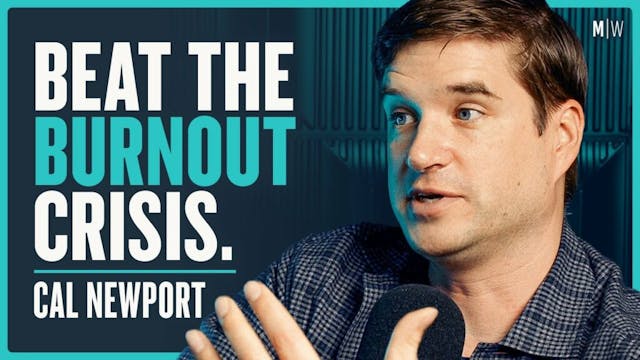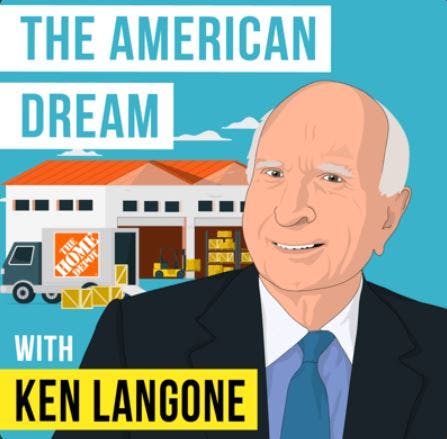
August 31, 2019
Marc Andreessen: From the Internet’s Past to the Future of Crypto – The a16z Podcast
Check out the a16z Episode Page & Show Notes
Key Takeaways
- The evolution of cryptocurrency and blockchain technology has many parallels to that of the internet
- Just as many think crypto is hard to use/difficult to understand, the internet was nearly impossible to access in its early days
- The original sin of the internet: payments not being incorporated into the browser
- Because of this, the internet today is based predominantly on advertising
- Downstream of advertising is everything else people are anxious and worked up about (privacy, data collection, misalignment of incentives, etc.)
- Because of this, the internet today is based predominantly on advertising
- If crypto/blockchain were around in the early internet days, it would have been much easier to incorporate financial transactions into the internet browser
- This would have (potentially) allowed for the creation of superior economic models (compared to advertising)
- On a timeline compared to the internet, we’re in ~1992-1993 (the period right before the internet went mainstream)
Intro
- In this episode of the a16z Podcast, general partner Katie Haun (@katie_haun) interviews a16z co-founder Marc Andreessen (@pmarca) at their inaugural Crypto Regulatory Summit
The Evolution of the Internet
- Marc is the co-founder of Netscape, which helped popularize and mainstream the internet for many
- The internet started off as something only academics used in the 1980s and slowly became a mainstream economic growth engine
- “The evolution of the internet over time has so many echos and comparisons to what I’m seeing with cryptocurrency and blockchain. It’s really quite remarkable.”
- Decentralization was key for the internet early on as the original motivation for its creation was to have a network that could survive a nuclear attack
- Many senior executives and top scientists thought that there was no way the internet could exist, scale, or even be secure enough to use
- It was actually illegal to use the internet for commercial transactions until 1993 according to the acceptable use policy (AUP)
- In 1994, internet traffic began to take off and the AUP was revised
- “I think you can trace a direct line to the economic boom of 1994-2000 from legalizing commercial use of the internet”
Where are the Googles and Amazons of crypto?
- Once commercial activity on the internet became legal, there was some backlash
- The main argument: it wasn’t secure and big companies weren’t hooked up to it yet
- This is another parallel to the crypto space – it’s easy to see the use cases, but where are the Amazons and Googles of crypto?
- The main argument: it wasn’t secure and big companies weren’t hooked up to it yet
- But think about where Amazon came from:
- The first internet store was a bookstore (not Amazon) known as Future Fantasy Books (established in 1993)
- Business doubled in the first two weeks of the store setting up a website
- People experimenting liked this paved the way for what became e-commerce
- “It was NOT obvious that it was going to make sense to have these online businesses. It was NOT obvious that the use cases would have consumer demand. It was NOT obvious you’d be able to secure it. It was NOT obvious there’d ever be a business model behind it.”
- The first internet store was a bookstore (not Amazon) known as Future Fantasy Books (established in 1993)
Sure Crypto is Hard to Use, But So Was the Internet
- Mainstream consumers tend to have the view that crypto is hard to use/difficult to understand
- But realize, the internet was also quite difficult to access in its early days (even for people who were good with computers)
- “There was no internet button. None of the computers in 1992-1993 had any Internet awareness at all.”
- Here’s what you had to do if you wanted to access the internet:
- Step 1: Go to a bookstore and buy a book about how to use the internet
- “There was a point when it seemed like all the bookstores were going to be taken up by literally just internet books”
- Step 2: In each book, there’d be a floppy disk which you had to load onto your PC – it’d then take you through a LONG series of instructions
- “You basically had to rebuild your operating system on the fly as an end-user to add internet support. It was very comical doing this because if you made a mistake, you’d probably break your computer… forever… You’d get all the way to the end of that process and think you’d be ready to access the internet, but then you had to go buy a modem.”
- Step 3: Buy a modem
- Step 4: Configure the computer and modem to work with each other
- “That was another 38-step process which you had to do VERY carefully”
- Step 5: Sign up with an internet service provider (ISP)
- But you couldn’t just Google an ISP (obviously), you had to take out a phone book, find one, and call then up
- Step 1: Go to a bookstore and buy a book about how to use the internet
- Long story short – crypto is much easier to work with than accessing the internet in the early days
- “The good news is that this applied a high bar to people who got on the internet. They were incredibly enthusiastic and thrilled to be there. It was like joining the Marine Corps”
The Original Sin of the Internet
- Back in the early days of the internet, shouldn’t there have been some sort of “buy button” in your browser which you could click to purchase information or a product?
- Think: Like today’s version of the Apple app store or one-click buy on Amazon
- “One would think the most obvious thing to do would be to incorporate the ability to spend money”
- “Because we were unable to build payments into the browser… as a consequence, that is why the internet today, at least in the U.S., is predominantly based on advertising”
- And downstream of advertising is everything else people are anxious and worked up about – privacy, user data collection, user data targeting, third-party ad networks, the misalignment of incentives
- For example – Does the news site you’re reading have the incentive to tell you the truth or are they just trying to get you more hyped up so you’ll click on more stories and allow them to generate more ad revenue?
- Why weren’t payments built into the browser?
- Both Netscape and Microsoft tried, but neither could make it work with the credit card companies or banks
- And downstream of advertising is everything else people are anxious and worked up about – privacy, user data collection, user data targeting, third-party ad networks, the misalignment of incentives
If crypto/blockchain tech were around during the internet’s early days, how might that have changed things?
- “If they were around, we would have been able to have a parallel transaction system that would NOT have been reliant on the centralized gatekeepers”
- “Had we done that… 80% of the things people hate about the internet today would not be problems”
- Another possibility – it would have been much easier to align economics with user/company behavior
- This is the way the real world works – you know something is valuable because someone is willing to pay for it
- The more someone is willing to pay, the more valuable it is
- Consumers vote with their wallets – if one provider of a product/service isn’t cutting it, it’s on to the next
- “The internet generated a TON of economic growth just with the advertising model. But what if you had had the turbocharge of a REAL economic model based on money integrated into the browser from the very beginning?”
- This is the way the real world works – you know something is valuable because someone is willing to pay for it
- Marc adds:
- “One of the reasons I’m so excited about crypto and blockchain is because it’s the first chance I’ve seen to revisit the original sin of the internet”
Where are we in the crypto journey?
- Compare it to the internet:
- 1965: Vince Cerf and Bob Kahn come up with the original idea for TCP/IP
- 1989: It’s present on university campuses, but no normal person would use it
- 1992: It’s a fringe activity, but not quite mainstream and still too hard to use
- 1994: It goes mainstream
- “It feels to me like it’s in 1992 or 1993, somewhere in there”
- The usability gap still has a long way to close – although several big use cases exist, they still have to be productized and provided to more people
- “It’s starting to feel really, really close to mainstream”
- Marc adds – “It was NOT clear in 1994 that the internet was going to hit the knee in the curve. If you read the press coverage of the internet in 1994, it all said, ‘This thing is a joke, it’s a toy, it’s not serious.'”
Given the regulatory environment, is Marc optimistic that the U.S. can be a center for emerging financial technologies like crypto?
- It’s again analogous to the internet
- “Had the acceptable use policy not been updated by the government in 1993, the internet could have been strangled”
- “I’m very optimistic”
- We have the critical mass of talent, the entrepreneurship community, venture capital, research universities, the risk-taking culture… all the raw materials necessary to have crypto be a major engine for economic growth



